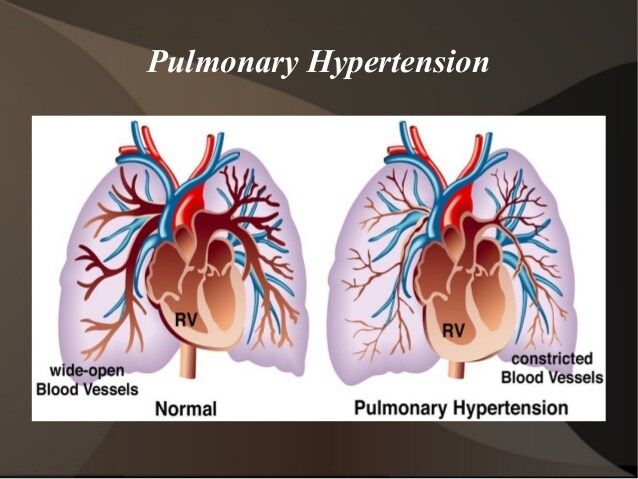
What is Pulmonary hypertension (PH)?
Pulmonary hypertension (PH) is a type of high blood pressure that affects the arteries in your lungs and the right side of your heart.
In one form of pulmonary hypertension, called pulmonary arterial hypertension (PAH), blood vessels in your lungs are narrowed, blocked or destroyed. The damage slows blood flow through your lungs, and blood pressure in the lung arteries rises. Your heart must work harder to pump blood through your lungs. The extra effort eventually causes your heart muscle to become weak and fail.
In patients with PH, there is a significant increase in reactive oxygen species (ROS), a condition named Oxidative Stress. Their accumulation can seriously damage cells, and so treatment of PH patients with antioxidants has proven to be effective. Notably, however, high doses of nonselective antioxidants (i.e., antioxidants that can bind multiple receptors in several different places in the body) can have detrimental effects, such as inducing hemorrhage. Therefore, selective antioxidants are a safer and more efficient therapy to PH patients.
-How hydrogen works?
Molecular hydrogen (H2) is a selective antioxidant because it selectively reduces two specific ROS (hydroxyl radicals and peroxynitrite), without affecting what is now described as physiological ROS (i.e., ROS that is beneficial and necessary for cells’ survival).
H2 has shown protective effects by selectively binding to damaging ROS. H2 prevents the development of PH and reverse RV hypertrophy. Accordingly to previous studies, the therapeutic effect of H2 was related to its antioxidant (particularly by inhibiting a byproduct of the damaging ROS peroxynitrite) and anti-inflammatory activities. Whereas, drinking hydrogen-rich water is an effective, less expensive and most convenient method to administer hydrogen in your body. Although previous studies have reported that antioxidants could effectively reduce PH, H2 is the trusted antioxidant because of its property of only selectively reducing harmful free radicals.
48 comments. Leave new